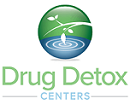PACE Recovery Center Nare is located in Westport, Connecticut. There are seven rooms, a gym, exercise and meeting facilities.

PACE Recovery Center Nare has a mission to promote positive thinking, healthy habits, and to help individuals overcome their addiction. The center strives to help individuals make healthy choices. According to the center’s mission, “PACE is committed to providing a strong, supportive, and collaborative environment where our clients are encouraged to find new solutions for their problems.”
The program includes learning about the psychology of recovering addicts. The center works with its client to identify what causes their addiction and to create a plan to overcome that cause. The center provides training and consulting services to its clients so they can become productive members of society.
The Center was founded in 1974 by Donald W. Winnicott. Winnicott was an alcoholic who had a difficult time quitting his alcohol consumption. He discovered that the root cause of addiction was a lack of self-esteem and developed the center in order to help others. The Center works with individuals in a twelve-step program, so they know how to move forward and overcome addictions.
Some of the center’s recovery programs include: cognitive behavioral therapy, yoga, psychotherapy, group therapy, and cognitive restructuring. All of the programs are taught by professional therapists with many years of experience in the field.
The center offers different kinds of programs. The Addiction Life Coaching Program addresses the various causes and effects of addiction. The Life Coaching Program also includes a group work component.
The center also offers classes on hypnotherapy, marriage counseling, drug rehabilitation, family therapy, and other programs. The center uses the 12 Step Program of Alcoholics Anonymous.
PACE Recovery Center Nare is one of several rehab centers in the United States. The center has been listed on the National Association of Alcoholism and Drug Addiction Services Web site since its founding.
The rehab center provides several treatment options for addicts. The center offers residential, group, and inpatient treatments. Residential treatment requires an addict to live in a therapeutic facility for at least one week.
Group therapy usually requires six to twelve weeks of attending meetings. The center will provide individual counseling and group therapy.
The detoxification program requires that addicts undergo detoxification and clean out their bodies of drugs, alcohol and other substances. The detoxification process should be completed after at least one week. Inpatient care takes up to six weeks to complete.
Group therapy and residential treatment centers typically take less than one month. to complete.
Residential treatment centers provide residential care for up to two to four months. These residential care programs are more affordable and offer patient’s individualized treatment plans.
The residential care program usually takes about three to six weeks to complete. The residential care program offers both inpatient and outpatient services. The program provides patients with support and supervision.
The center offers many activities for those who enter the rehab center. The center hosts numerous events for addicts. The center hosts a variety of workshops and seminars. The center organizes art shows and conferences.
The center also sponsors a number of community programs. These programs provide individuals and families with the skills they need to become stronger and more independent. The center sponsors the Narcotics Anonymous group. This group works toward a spiritual healing.
The center sponsors an education program for teenagers. This program provides students with the skills to overcome negative habits and develop positive habits.
The recovery program helps patients become empowered with the tools they need to lead a healthier and more rewarding life. The program helps them maintain a healthy body and mind through counseling and education.
